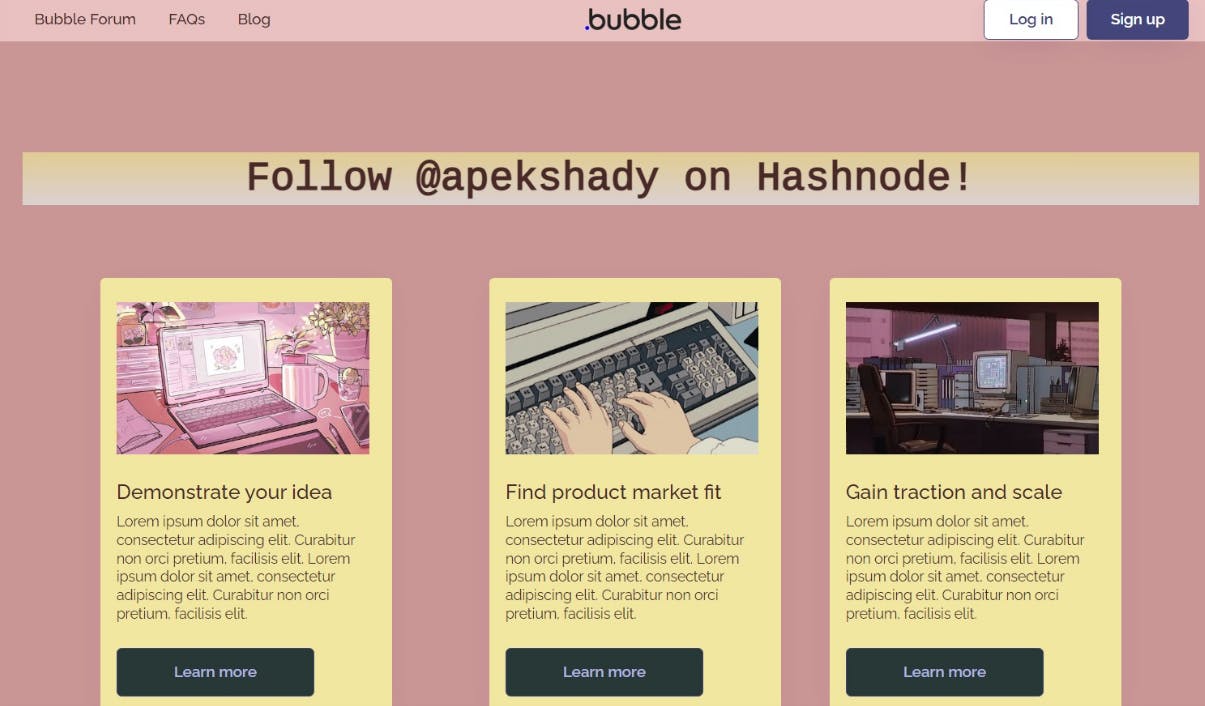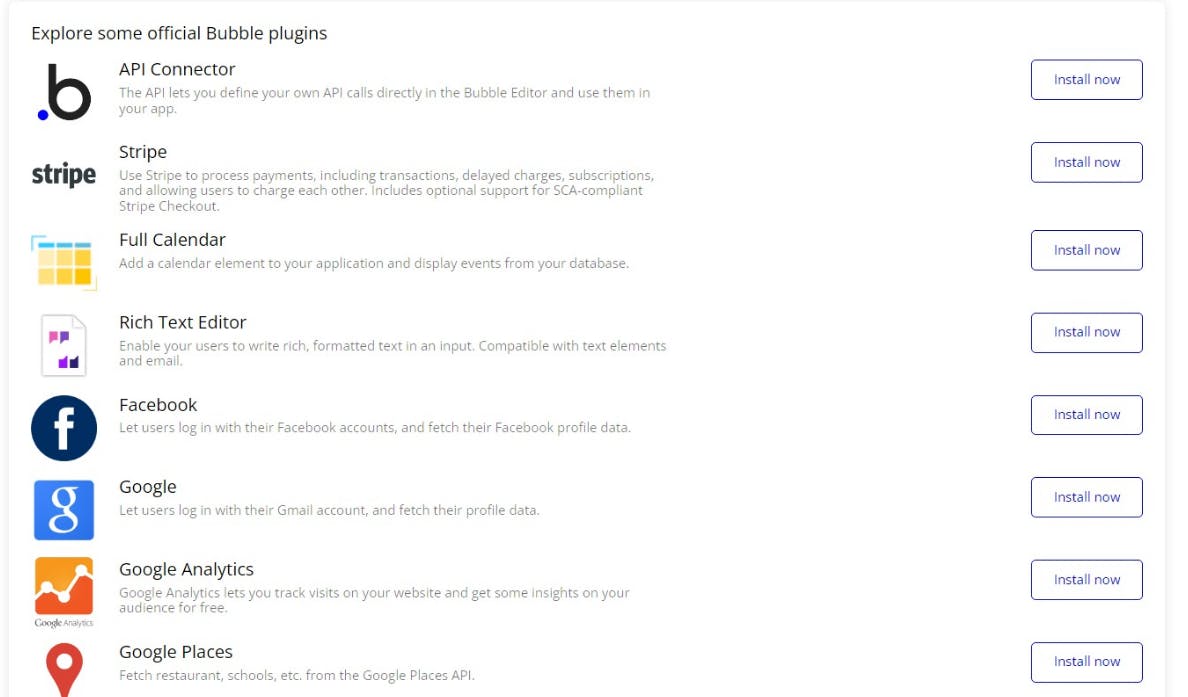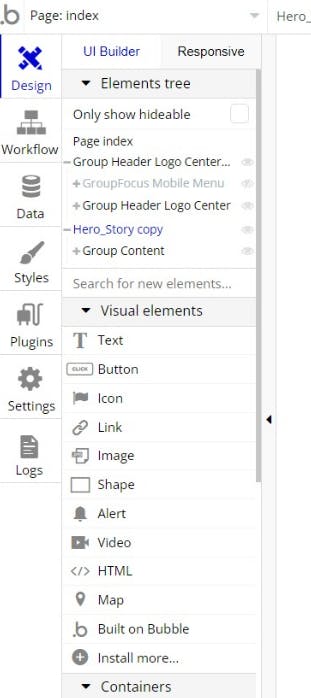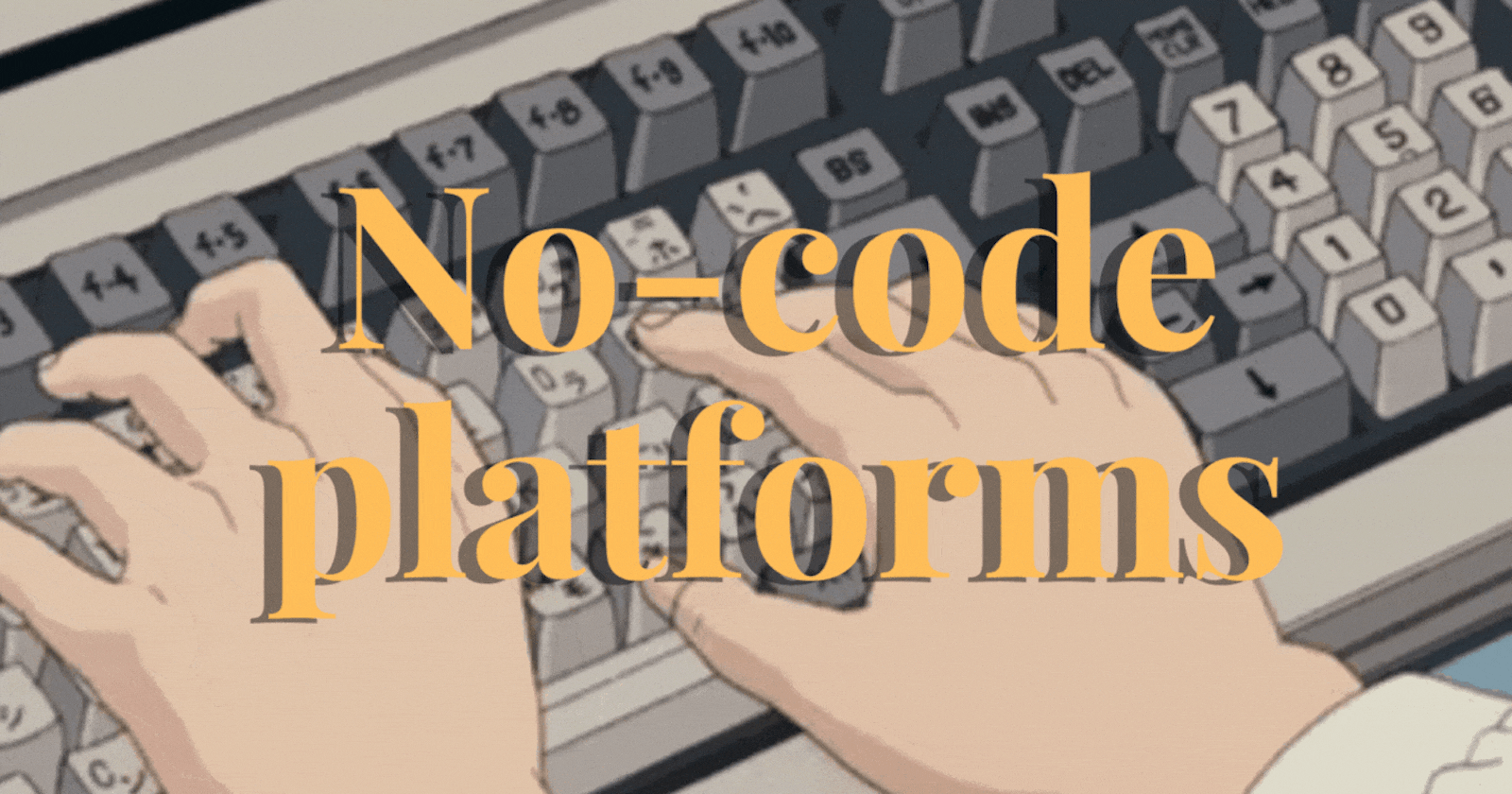💻Introduction
Are you tired of pretending to know what your tech-savvy colleagues are talking about when they throw around terms like "CSS" and "JavaScript"? Do you break out in a cold sweat at the thought of writing even a single line of code?

Well, fear not!
The rise of no-code platforms is here to save the day (and your sanity). With these platforms, you can build software applications without writing a single line of code!!!!!

That's right, you can finally say goodbye to the days of pretending to be a coding genius and hello to the days of effortlessly building software applications like a pro. So sit back, relax, and let's explore the wonderful world of no-code platforms.
🚂How do these platforms work?
No-code platforms typically work by providing users with visual interfaces and pre-built components that allow them to create software applications without writing code.
These platforms often use drag-and-drop interfaces and offer a range of widgets and templates to help users build applications quickly and easily. Users can simply drag and drop components onto a canvas and use visual tools to configure them and define their behaviour.
📚Demo of a no-code platform
For example, I tried bubble to make a simple landing page.

Took me mere 2 minutes to make my landing page! You can do so much more with it!


Several plugins and visual elements are provided to make your app more interactive and responsive!!
✨Free no-code platforms
Bubble: No-code platform that allows users to create web applications without writing any code. It offers a drag-and-drop interface and a range of pre-built components.
Glide: Glide is a no-code platform that allows users to create mobile applications from Google Sheets.
Adalo: No-code platform that allows users to create mobile applications without writing any code.
Thunkable: No-code platform that allows users to create mobile applications for iOS and Android. Students can also apply for a free education plan that provides access to additional features and resources.
📉Are no-code platforms a threat to Software Developers?

On one hand, no-code platforms can allow non-technical users to create simple applications without the need for programming skills. This means that some of the more basic software development work could be handed to non-technical employees.
HOWEVER, no-code platforms are NOT a replacement for skilled software developers.
Complex applications and systems still require specialized programming knowledge and problem-solving skills that can't be easily replicated by drag-and-drop interfaces and pre-built components.
Developers can use no-code platforms to create prototypes or build simple applications quickly, freeing up more time to focus on the more complex and challenging aspects of software development.
So you can celebrate now!

🚀Cons of no-code platforms??
While no-code platforms offer many benefits, there are also some potential drawbacks to consider!!
Limited customization: Customization options are limited. This can be frustrating for users who want to build highly customized applications.
Security: No-code platforms often require users to upload data and sensitive information to the cloud, which can raise security concerns.
Performance issues: Some no-code platforms may not be optimized for high-performance applications, which can lead to slower load times or other performance issues.
Limited integrations: No-code platforms may not be compatible with all the third-party tools and services that users need to integrate with their applications.
Difficulty debugging: Debugging can be difficult on no-code platforms because they hide away the underlying code.
🍀Conclusion
No-code platforms allow people who don't know how to code to create apps easily and quickly. However, these platforms have some limitations, such as not being able to customize the app much and not always being secure or fast. Although these platforms are changing the way people create apps, we don't yet know how much they will impact the future of software development.
Till then, make the most of it!
